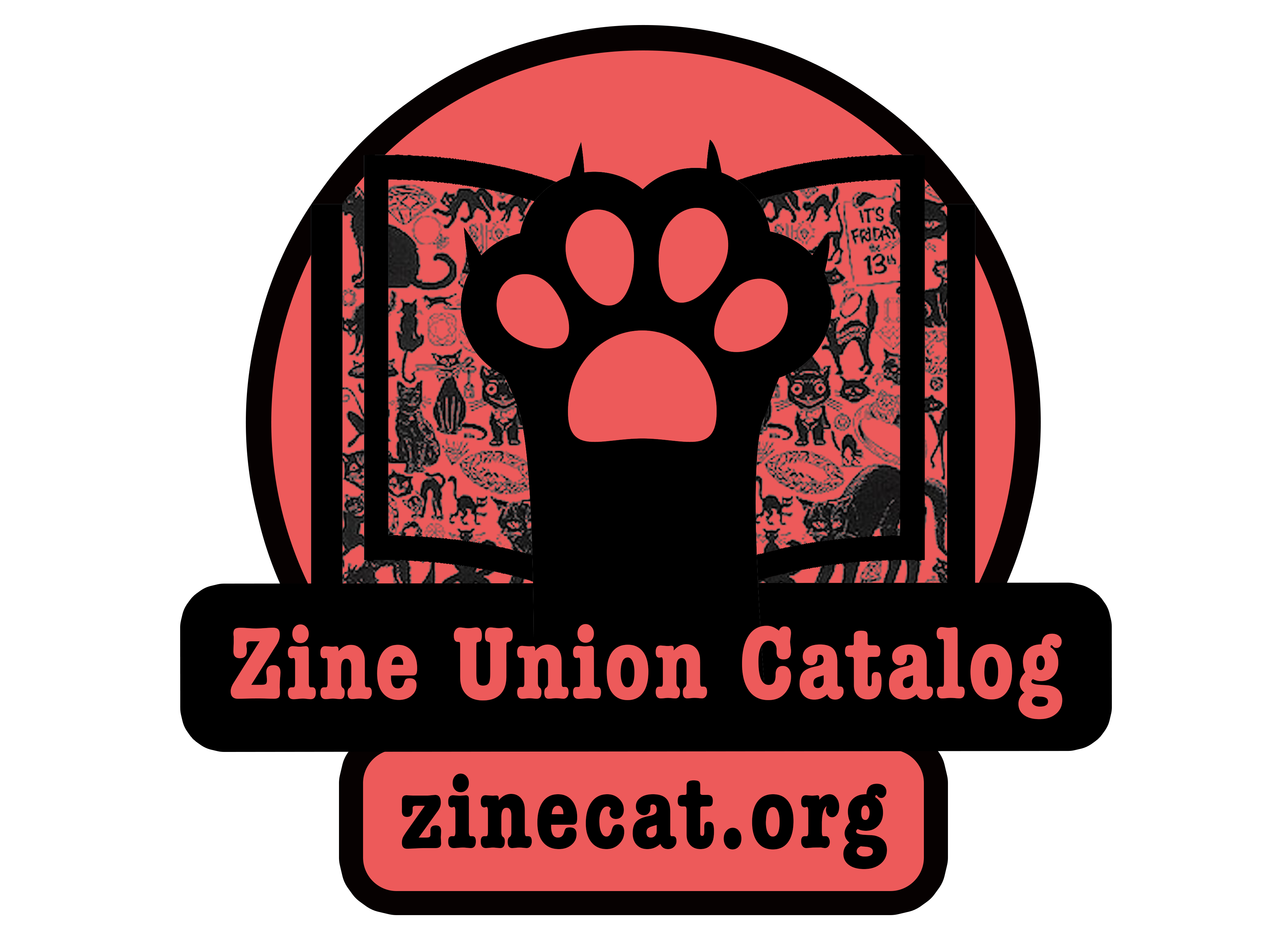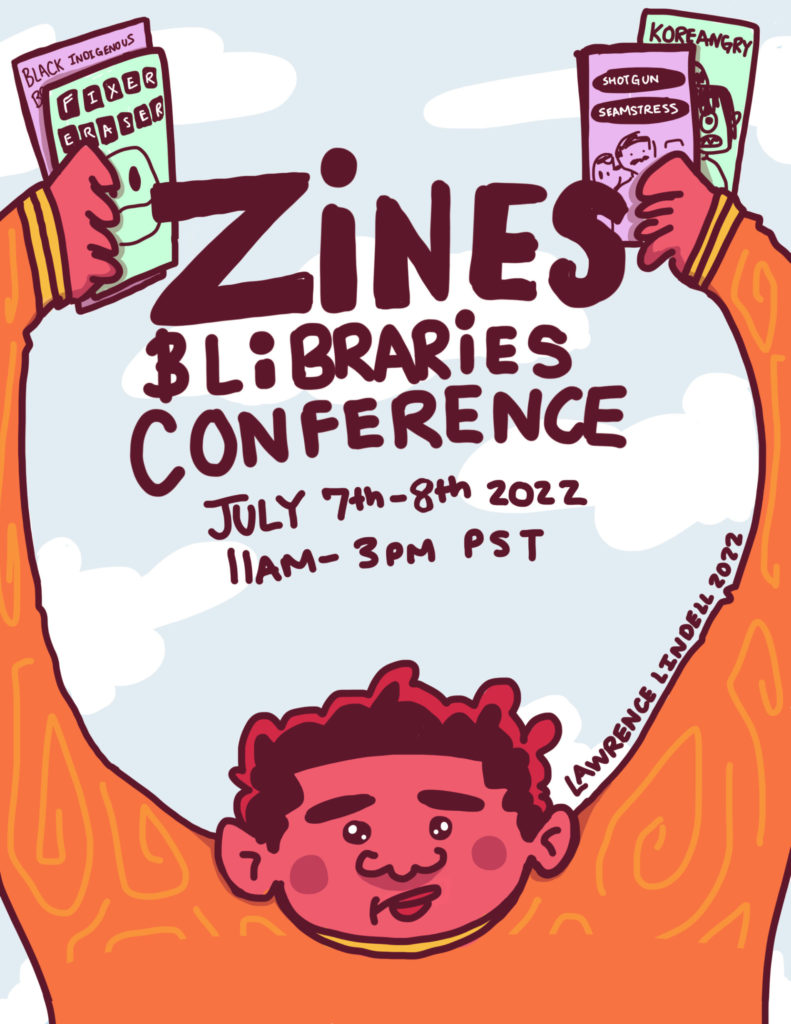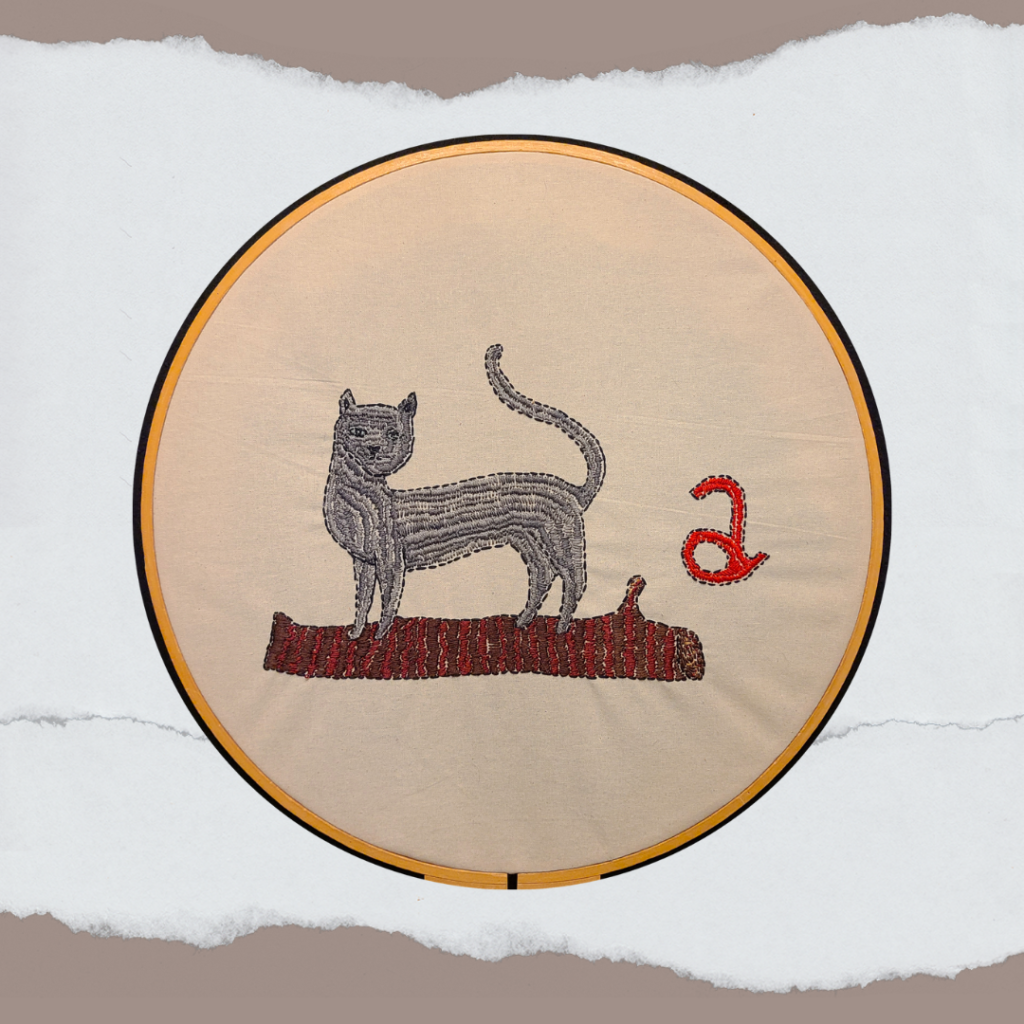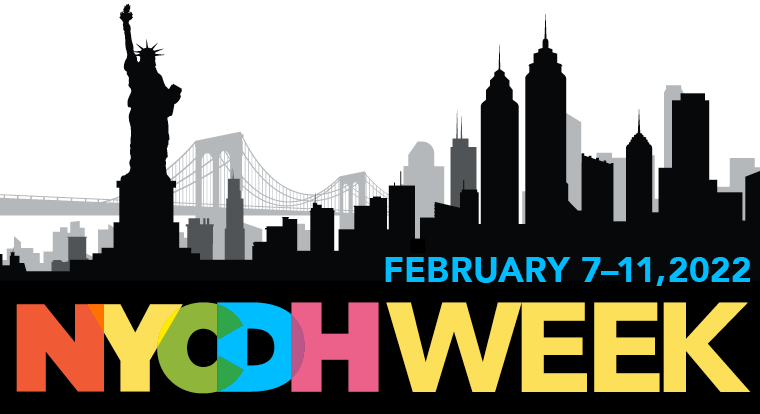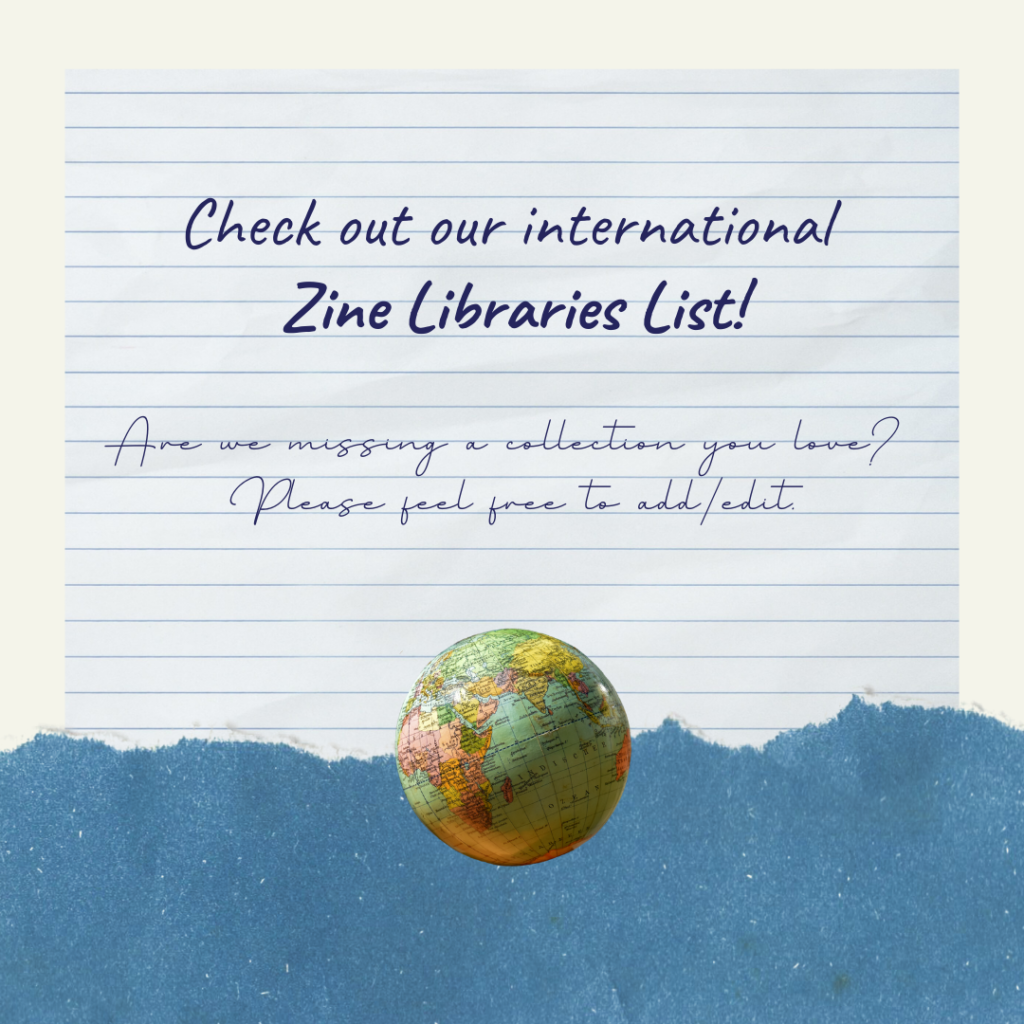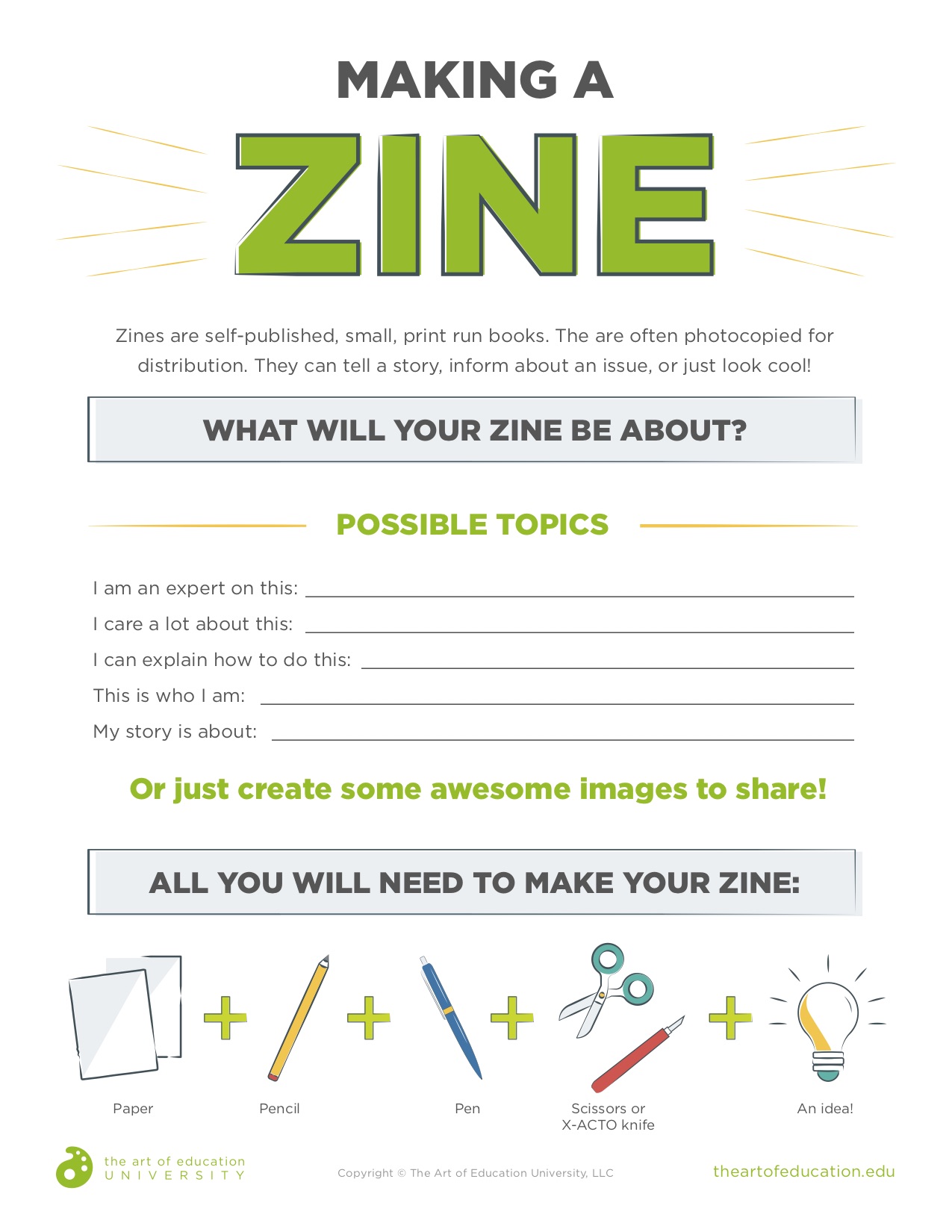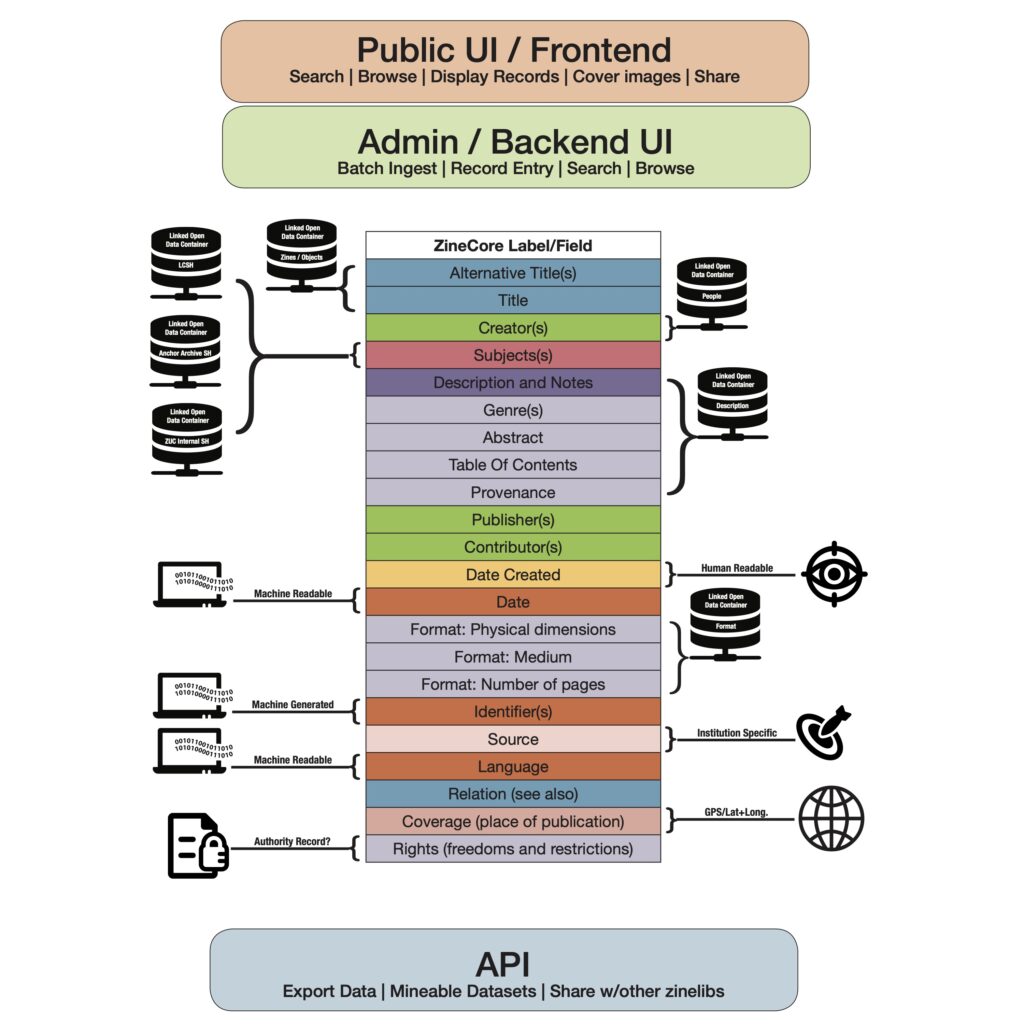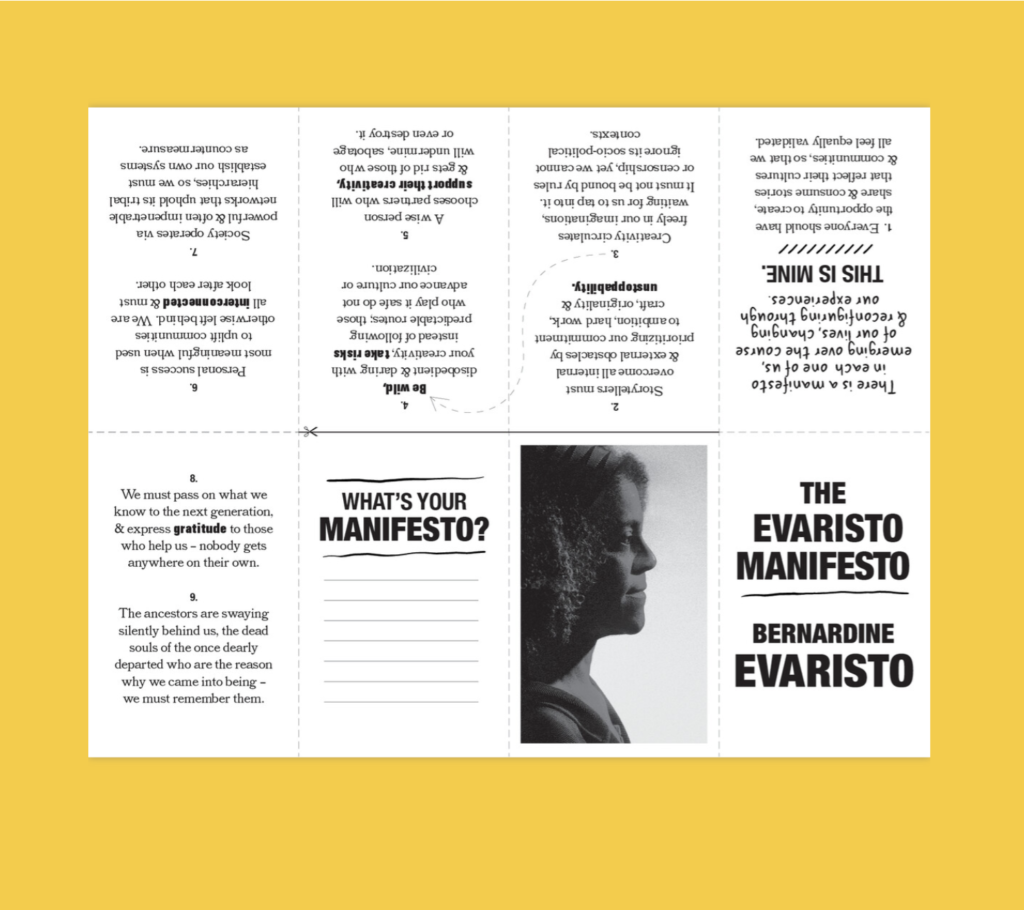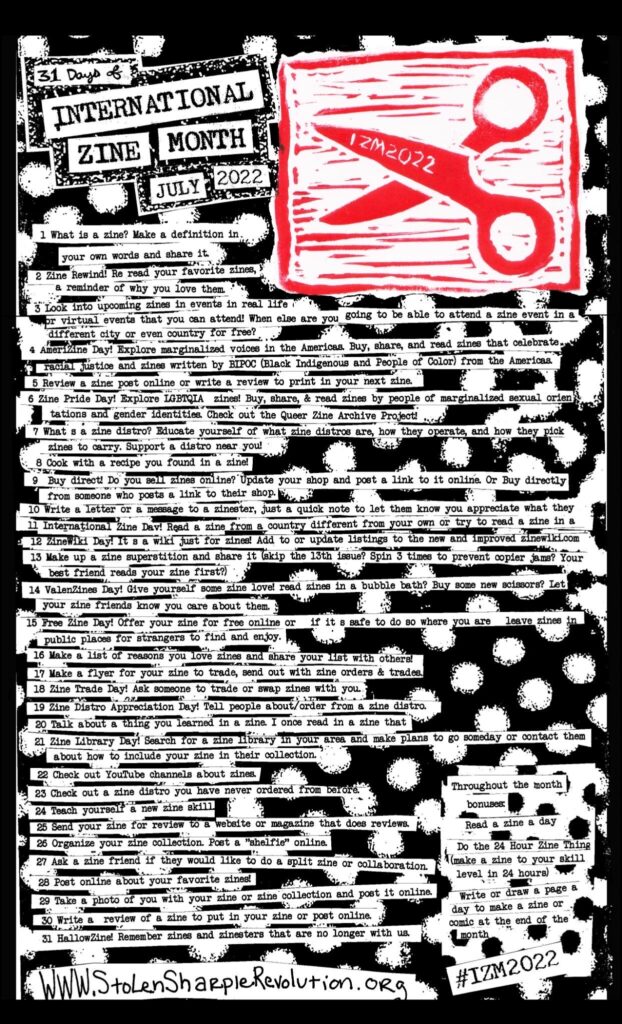
July is International Zine Month! Alex Wrekk of the Stolen Sharpie Revolution put together this awesome poster with prompts for each day of the month. The text from the poster is shared below:
31 Days of International Zine Month 2022 #IZM2022
1 – What is a zine? Make a definition in your own words and share it.
2 – Zine Rewind! Re-read your favorite zines and remind yourself why you love them.
3 – Look into upcoming zine events to attend in real life or virtual events that you can attend! When else are you going to be able to attend a zine event in a different city or even country for free?
4 – AmeriZine Day! Explore marginalized voices in the Americas. Buy, share, and read zines about racial justice and zines written by BIPOC (Black Indigenous and People of Color) from the Americas. Need a place to start? Check out Brown Recluse Zine Distro.
5 – Review a zine: post it online or write a review to print in your next zine.
6 – Zine Pride Day! Explore LGBTQIA+ zines! Buy, share, and read zines by people of marginalized sexual orientations and gender identities. Check out the Queer Zine Archive Project!
7 – What’s a zine distro? Educate yourself of what zine distros are, how they operate, and how they pick zines to carry. Support a distro near you!
8 – Cook with a recipe you found in a zine!
9 – Buy direct! Do you sell your zines online? Update your shop and post a link to it online so people can get your zines directly from you. Or buy directly from someone who posts a link to their shop.
10 – Write a letter or send a message to a zine maker, just a wuick note to let them know you appreciate what they do.
11 – International Zine Day! Buy, share, or read zines from a country different than your own.
12 – ZineWiki Day! It’s a wiki just for zines! Add to or update listings to the new and improved zinewiki.com
13 – Make up a zine superstition and share it (skip the 13th issue? Spin 3 times to prevent copier jams or avoid paper cuts? Your best friend has to read your zine before anyone else?)
14 – ValenZines Day! Give yourself some zine love in whatever way it means to you! read zines in a bubble bath? Buy some new scissors? Let your zine friends know you care about them.
15 – Free Zine Day! Offer your zine for free online or – if it’s safe to do so where you are – leave zines in public places for strangers to find and enjoy.
16 – Make a list of reasons you love zines and share your list with others!
17 – Make a flyer for your zine to trade with others, post online, or send out with zine orders and trades.
18 – Zine Trade Day! Ask someone to trade or swap zines with you.
19 – Zine Distro Appreciation Day! Tell people about your favorite zine distros! Order zines from a distro.
20 – Talk about something you learned in a zine. Start with “I once read in a zine that…”
21 – Zine Library Day! Search for a zine library in your area and make plans to go someday or contact them about how to include your zine in their collection.
22 – Check out YouTube channels about zines. Here are some to visit:
23 – Check out a zine distro you have never ordered from before.
24 – Teach yourself a new zine skill (like a new binding technique or how to make a 1 page zine).
25 – Send your zine out for review to a website or magazine that does reviews.
26 – Organize your zine collection. Post a “shelfie” online.
27 – Ask a zine friend if they would like to do a split zine or collaboration with you.
28 – Post online about your favorite zines!
29 – Take a photo of you with your zine or zine collection and post it online.
30 – Write a review of a zine to put in your zine or post online.
31 – HallowZine! Remember zines and zinesters that are no longer with us.
Throughout the month bonuses :
- Do the 24 Hour Zine Thing (make a zine to your skill level in 24 hours)
- Read a zine a day.
- Write or draw a page a day to make a zine or comic at the end of the month.
- Write a letter or online post about your #IZM2022 experience.
